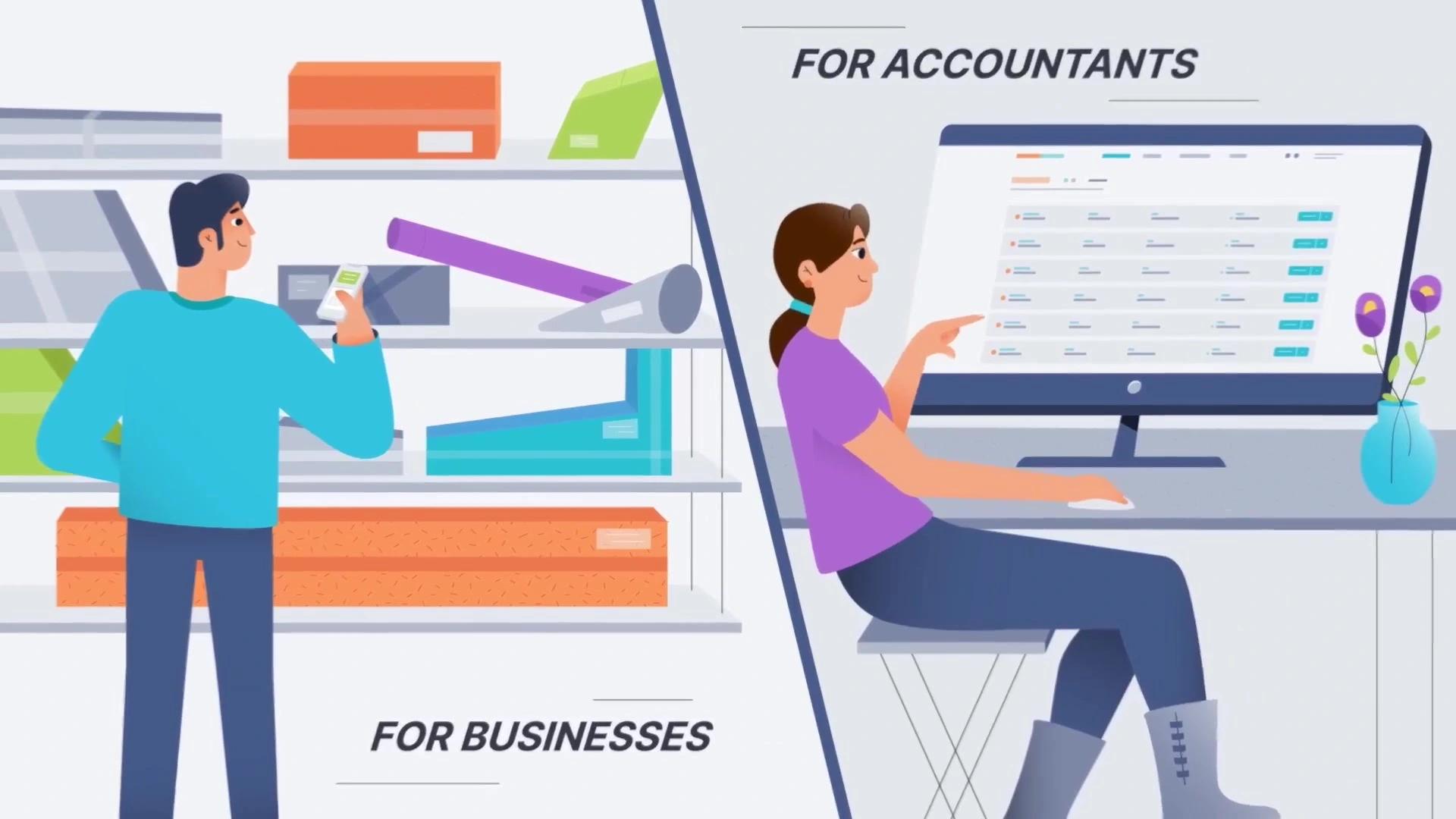Dropshipping has emerged as a popular business model in the eCommerce landscape, offering entrepreneurs the opportunity to launch an online store without the need to pay for substantial upfront investment in inventory.
However, amidst the excitement of starting a dropshipping business, many overlook a crucial aspect: taxes. Navigating the intricate landscape of dropshipping taxes, particularly in the United Kingdom, can be an overwhelming task.
This comprehensive guide aims to demystify the complexities of managing taxes for your UK-based dropshipping venture, equipping you with the knowledge and tools necessary to ensure compliance, tax returns, minimize your tax liability, and ultimately, thrive in the competitive world of e-commerce.







Understanding the Fundamentals of Dropshipping Taxes
Deciphering the Tax Landscape for Dropshippers

Dropshipping taxes encompass a multitude of tax obligations that every dropshipper must understand and adhere to. These include:
- Income taxes
- Sales taxes
- Value Added Tax (VAT)
Each type of tax has its own set of rules pay taxes and regulations, which can vary depending on your business structure, revenue, and the location of your end customer.
As a dropshipper, it is imperative to grasp the intricacies of these taxes to avoid potential legal, tax returns and financial pitfalls and ensure you are paying taxes correctly.
As a dropshipper, it is imperative to grasp the intricacies of these taxes to avoid potential legal and financial pitfalls, pay income taxes and ensure you are paying taxes correctly.
The Significance of Tax Compliance in Dropshipping
Failing to comply with dropshipping tax regulations can lead to severe consequences, including:
- Hefty fines and penalties
- Legal action
- Suspension of your e-commerce accounts
- Damage to your business reputation
By prioritizing tax compliance, you demonstrate a commitment to ethical online business practices, foster trust among your customers who buy from your online store, and create a solid foundation for long-term success in the dropshipping industry.
Navigating the Intricacies of Sales Taxes in Dropshipping
Grasping the Concept of Sales Tax Nexus
In the context of dropshipping, a sales tax nexus refers to the connection between your business and a specific jurisdiction that triggers the obligation to collect sales tax then remit.
While the concept of sales tax nexus sales is more prevalent in countries like the United States, UK-based dropshippers must still be aware of its implications when selling to international customers. Factors that can establish a sales tax nexus include:
While the concept of sales tax nexus is more prevalent in countries like the United States, UK-based dropshippers must still be aware of its implications when selling to international customers. Factors that can establish a sales tax nexus with other countries include:
- Inventory storage
- Economic activity
- Affiliate relationships
If you have a sales tax nexus business activities in a particular jurisdiction, you need to register and comply with the sales tax regulations of that jurisdiction.
Strategies for Collecting and Remitting Sales Taxes
Once you have determined your sales taxes obligations, it is crucial to implement efficient processes for collecting and remitting the appropriate amount of tax.
This can be a daunting task, especially when dealing with multiple jurisdictions and varying tax rates. To streamline the tax return process, consider the following strategies:
- Integrate your dropshipping platform with a robust tax management solution like Link My Books, which automatically calculates and applies the correct sales taxes rates based on the customer's location.
- Maintain accurate records of your sales, including transaction details, customer information, and tax amounts collected.
- Set aside the collected sales tax funds in a separate account to ensure you have sufficient funds to remit to the appropriate tax authorities.
- Stay updated on changes in sales tax regulations and nexus laws that may impact your dropshipping business.
By implementing these strategies and utilizing the right tools, you can effectively manage your sales taxes obligations, ensure compliance, and even avoid paying potential penalties.
By implementing these strategies and utilizing the right tools, you can effectively manage your sales taxes obligations, ensure compliance, and even avoid paying potential penalties.
Navigating Income Taxes for Dropshipping Entrepreneurs

Understanding Your Income Tax Obligations
As a dropshipping business owner, you are responsible for reporting your dropshipping activities as business income and paying income taxes on your profits. The specific tax rates and thresholds depend on your business structure:
As a dropshipping business owner, you are responsible for reporting your dropshipping activities as business income and paying income taxes on your profits. The specific tax rates and thresholds depend on your business structure:
- Sole proprietorship (subject to self-employment tax)
- Partnership
- Limited company
Your total taxable income determines the applicable income tax top bracket. It is essential to keep accurate records of your sales, expenses, and inventory costs to calculate your profit margins and determine your income tax liability.
Seeking the guidance of a qualified tax professional can help you navigate the complexities of income taxes and ensure compliance with UK tax laws.
Maximizing Tax Deductions and Benefits
To minimize your income tax burden, it is crucial to leverage all available tax deductions and benefits. As a dropshipper, you can claim deductions for various business expenses, and taxes such as:
- Platform fees
- Advertising costs
- Shipping charges
- Home office expenses
Keeping detailed records and receipts of these expenses is essential for substantiating your deductions in case of an audit.
Additionally, explore tax credits and incentives offered by the UK government to support small businesses and entrepreneurs.
Consult with a tax expert to identify and maximize the deductions and benefits applicable to your specific dropshipping business.
Mastering VAT for UK Dropshippers

Understanding VAT Registration Requirements
Value Added Tax (VAT) is a consumption tax levied on goods and services in the UK.
As a dropshipper business, you must register for VAT if your taxable turnover exceeds the current threshold set by HMRC (Her Majesty's Revenue and Customs).
Failure to register for VAT and income, when required can result in significant penalties and interest charges. Once registered, you are responsible to pay income taxes for:
- Charging VAT on your sales
- Filing VAT returns
- Remitting the collected tax to HMRC
It is crucial to understand the VAT and tax rates applicable to your products and services and ensure accurate calculation and collection of VAT on your sales.
Streamlining VAT Management with Technology
Managing VAT can be a complex and time-consuming process, particularly for dropshippers dealing with high volumes of transactions across multiple platforms.
To simplify VAT management and ensure compliance, consider integrating a powerful tool like Link My Books into your dropshipping workflow. Link My Books offers several key benefits:
- Seamless integration with popular e-commerce platforms, automatically calculating and recording VAT on your sales.
- Generation of accurate VAT reports, making it easier to file returns and stay compliant with HMRC requirements.
- Real-time tracking of VAT liabilities and payments, providing a clear overview of your VAT position.
- Automated VAT calculations for cross-border sales, ensuring compliance with international VAT rules.
By leveraging technology, you can streamline your VAT processes, reduce the risk of errors, and free up valuable time to focus on growing your dropshipping business.
Avoiding Common Dropshipping Tax Pitfalls

Recognizing and Addressing Typical Tax Errors
Dropshippers often fall victim to common tax mistakes that can lead to costly consequences. Some typical errors include:
- Failing to register for VAT when required, resulting in penalties and interest charges.
- Incorrectly classifying products for VAT purposes, leading to under or over-charging customers.
- Inaccurate record-keeping and failing to keep up with changes in tax laws.
- Not properly tracking and remitting sales taxes in jurisdictions where nexus has been established.
- Misclassifying business expenses and missing out on eligible tax deductions.
By familiarizing yourself with these typical pitfalls and implementing robust processes to avoid them, you can minimize your risk of non-compliance and protect your dropshipping business from unnecessary financial and legal burdens.
Implementing Best Practices for Tax Compliance
To ensure ongoing tax compliance, it is essential to adopt best practices and stay proactive in managing your dropshipping business income, tax and taxes. Some key best practices include:
To ensure ongoing income tax and compliance, it is essential to adopt best practices and stay proactive in managing your dropshipping income tax and taxes. Some key best practices include:
- Regularly reviewing your tax obligations and staying informed about changes in tax laws and regulations.
- Keeping accurate and up-to-date records of your sales, expenses, and inventory.
- Setting aside sufficient funds to cover your tax liabilities and making timely payments to tax authorities.
- Utilizing a robust tax management solution like Link My Books to automate calculations, generate reports, and streamline filing processes.
- Seeking professional advice from a qualified tax expert when needed, particularly for complex tax situations or international sales.
By implementing these best practices, you can significantly reduce the risk of errors, ensure compliance, and maintain a healthy financial position for your dropshipping business.
Understanding Customs Duties and Import Taxes
Navigating Customs Duties for Dropshippers
When dropshipping products across international borders, it is crucial for businesses to understand the implications of customs duties. Customs duty is a tax levied on goods imported into a country.
As a dropshipper, you must be aware of the customs duties applicable to your products and ensure that they are properly declared and paid. Failure to comply with the customs duty regulations can result in delays, additional costs, and potential legal issues.
Strategies for Managing Customs Duties and Import Taxes
To effectively manage customs duties and import taxes, consider the following strategies:
- Research the customs duty rates and regulations for the countries you are shipping to, and ensure that your suppliers provide accurate product classifications and valuations.
- Clearly communicate with your customers about potential customs duties and import taxes they may need to pay upon delivery, to avoid surprises and maintain customer satisfaction.
- Consider offering Delivery Duty Paid (DDP) shipping options, where the seller takes responsibility for paying customs duties and import taxes upfront, providing a seamless experience for the customer.
- Keep accurate records of your international sales and customs documentation, as these may be required for tax purposes and to demonstrate compliance with customs regulations.
By proactively addressing customs duties and import taxes, you can ensure a smooth and compliant dropshipping process, avoid potential disruptions, and maintain positive relationships with your international customers.
Common Tax Misconceptions in Dropshipping
Dropshippers often hold misconceptions about their tax obligations, which can lead to costly errors and non-compliance. Some common tax misconceptions include:
- Believing that small businesses or low sales volumes are exempt from tax obligations.
- Assuming that using a third-party dropshipping supplier absolves the business from tax responsibilities.
- Misinterpreting tax laws and regulations, leading to incorrect calculations or reporting.
- Thinking that selling to customers in different countries automatically exempts the business from local tax requirements.
To avoid falling victim to these misconceptions, it is essential to thoroughly research and understand the tax implications specific to your dropshipping and business activities. Consult with tax professionals and stay updated on changes in tax laws to ensure you are meeting your obligations accurately.
Maintaining Accurate Inventory Records for Tax Purposes
Accurate inventory management is crucial for dropshippers, not only for operational efficiency but also for tax compliance. Properly tracking inventory costs, monitoring stock levels, and valuing inventory is essential for accurate tax reporting. Some key considerations include:
- Implementing an inventory management system that integrates with your dropshipping platform and accounting software.
- Regularly reconciling inventory records with supplier data to ensure accuracy.
- Properly valuing inventory using methods such as First-In-First-Out (FIFO) or Last-In-First-Out (LIFO).
- Keeping detailed records of inventory purchases, sales, and adjustments for tax purposes.
By maintaining accurate inventory records, you can ensure compliance with tax regulations and have the necessary data to support your tax return filings and any potential audits.
Preparing for Tax Audits as a Dropshipper
While the prospect of a tax audit can be daunting, being prepared can make the process much smoother. To prepare for potential tax audits, consider the following:
- Maintain organized and accurate financial records, including sales data, expenses, and inventory records.
- Keep all relevant tax documents, such as returns, receipts, and invoices, for the required period (usually several years).
- Regularly review your tax filings for accuracy and consistency.
- Understand your rights and obligations during an audit, and consider seeking professional assistance if needed.
Using a tool like Link My Books can help ensure your financial data is accurate and easily accessible, making audit preparation more manageable.
Collaborating with Tax Professionals for Optimal Results
While tools like Link My Books can significantly streamline tax management for dropshippers, there may be situations where consulting with a tax professional is beneficial. Consider seeking professional tax advice when:
- Setting up your dropshipping business structure and registering for taxes.
- Expanding into new markets or jurisdictions with unfamiliar tax regulations.
- Dealing with complex tax scenarios, such as cross-border transactions or unique product classifications.
- Facing a tax audit or dispute with tax authorities.
When choosing a tax professional, look for someone experienced in working with e-commerce and dropshipping businesses. Establish clear communication channels with customers and provide them with accurate and timely financial data to ensure optimal collaboration.
Harnessing the Power of Link My Books for Seamless Tax Management

Streamlining Tax Processes with Link My Books
Link My Books is a game-changing tool that simplifies tax management for dropshipping businesses. By seamlessly integrating with popular e-commerce platforms such as the Shopify store, Amazon, and eBay, Link My Books offers a range of powerful features:
Link My Books is a game-changing tool that simplifies tax management for dropshipping businesses. By seamlessly integrating with popular e-commerce platforms such as the Shopify store, Amazon, and eBay, Link My Books offers a range of powerful features:
- Automatic capture and categorization of sales data from multiple channels.
- Calculation of applicable taxes, including VAT and sales taxes, based on product classification and customer location.
- Generation of accurate tax reports for filing purposes, saving time and reducing the risk of errors.
- Real-time tracking of tax liabilities and payments, providing a clear overview of your tax position.
- Seamless integration with accounting software like Xero and QuickBooks, streamlining your financial management processes.
With Link My Books, you can confidently manage your taxes and focus on growing your dropshipping empire.
Achieving Peace of Mind

Numerous dropshipping entrepreneurs have revolutionized their tax management processes by implementing Link My Books.
Consider the story of Sarah, a UK-based dropshipper who struggled with the complexities of VAT and international sales taxes. By integrating Link My Books into her workflow, Sarah achieved the following benefits:
- Automated tax calculations for her multi-channel sales, ensuring accuracy and compliance.
- Significant time savings on manual data entry and tax filing processes.
- Real-time insights into her tax liabilities, enabling better financial planning and decision-making.
- Seamless integration with her accounting software, providing a comprehensive view of her business finances.
Like Sarah, countless other dropshippers have discovered the transformative power of Link My Books in streamlining their tax processes and achieving financial success.
Wrapping Up
Navigating the world of dropshipping taxes in the UK may seem daunting, but with the right knowledge, tools, and strategies, it is entirely manageable.
By understanding your tax obligations, implementing best practices for compliance, and leveraging the power of automation through Link My Books, you can confidently tackle the complexities of income taxes, sales taxes, and VAT.
Remember, investing time and effort into proper tax management is not just a legal requirement; it is a critical component of building a thriving and sustainable dropshipping business.
Take control of your dropshipping taxes today by harnessing the capabilities of Link My Books. Experience the relief of seamless tax management, accurate reporting, and the freedom to focus on what you do best: growing your e-commerce empire.
Ready to simplify your Amazon sales tax management and take your eCommerce business to the next level?
Sign up for Link My Books today and experience the power of automated tax calculations, reporting, and filing.
Don't let sales tax hold you back—join the thousands of Amazon sellers who trust Link My Books to streamline their operations and grow their businesses. Get started today and take control of your sales tax management!
Start your free trial now and see how Link My Books can save you time, reduce errors, and help you stay compliant with even the most complex sales tax laws.














.webp)




.png)